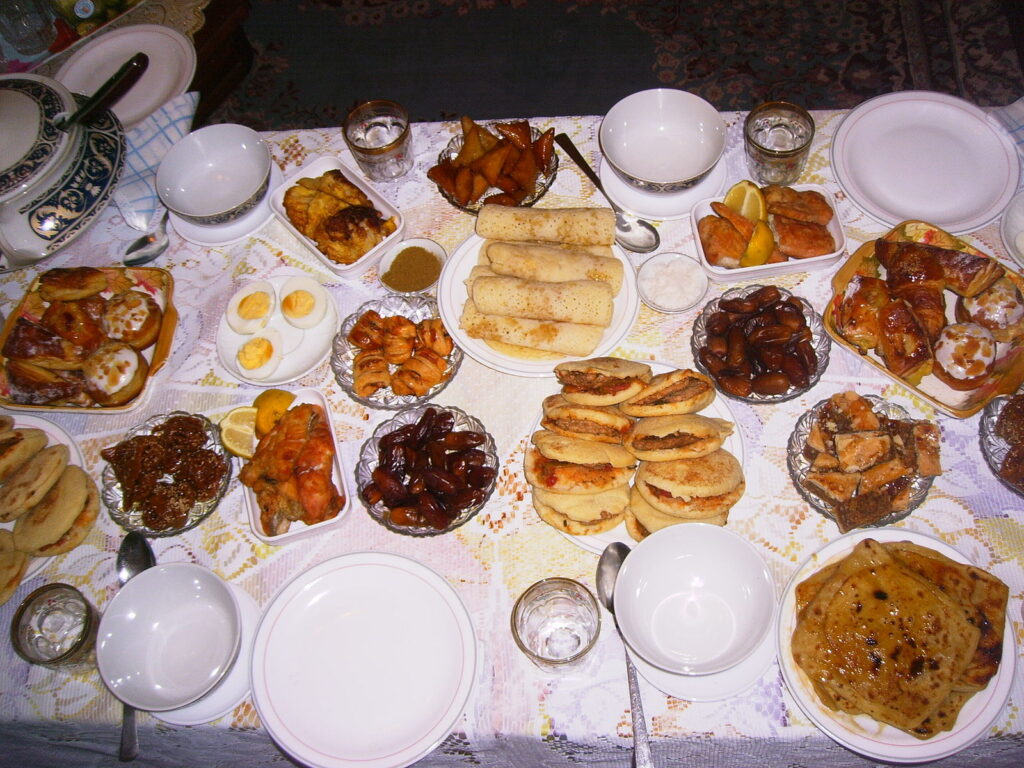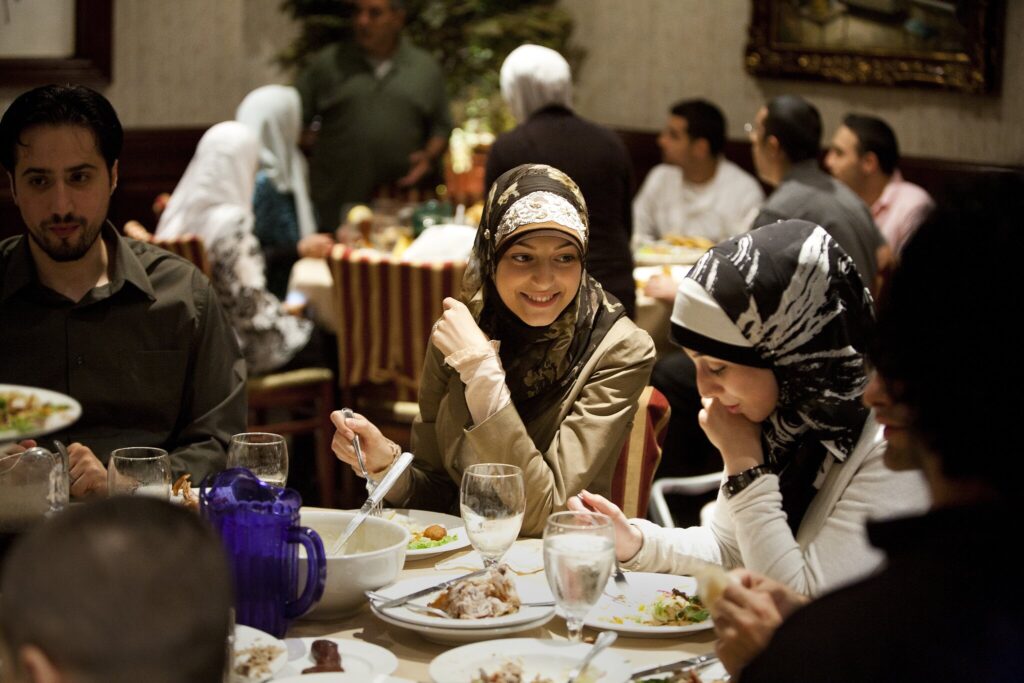Muslims around the world are in the final week of Ramadan. Many Christians I know, and Evangelicals particularly, are not positively inclined toward Muslims. Islam and Muslims are widely demonized and essentialized in their eyes. But why and how can we care about our Muslim neighbors, especially during Ramadan?
Being a follower of Christ from a Muslim background myself, I remember Ramadan as a child. I remember how my parents used to prepare food for the evening meal (the iftar), abstain from eating and drinking from sunrise to sunset, then gather together at sunset to break their fast as soon as they heard the “canon blow.” The food was great! It was like a feast that went on for thirty days! Afterwards, they would watch their favorite Ramadan TV series together as they spoke of how their day went by. After midnight, and before sunrise, my parents would wake up again and have a light meal and a substantive amount of water as they prepared themselves for yet another day of fasting. I also remember my father praying with a special passion during Ramadan. As for my mother, she would read the whole Qur’an during Ramadan. Yes, this is nostalgic for me, but it is also more than that.
Why?
Naturally, I have positive feelings towards Ramadan because I associate it with family (and food!). However, I think that all Christians should have positive feelings and behavior towards their Muslim neighbors as well. Here’s why biblically. Note that I will not be looking for simple “proof texts”, but rather for some biblical guidance.
First, the great commandment is clear; love God and love your neighbor as yourself (Matt 22:37-40). And even for those who think of Muslims as their enemies, Jesus calls them to love their enemies (Matt 5:43-48).
Second, in Luke 2:46-47 we encounter Jesus at the age of 12 sitting with the Jewish teachers of the law at the Temple. The order of events is interesting; Jesus was sitting among them, listening to them, and asking them questions. They were amazed at his understanding and were amazed at his answers.
He was sitting among them and building relationships, listening to them before speaking to them, asking them questions, as he worked to understand them deeply and with discernment. They were amazed at his understanding (i.e. wisdom and intelligence), not his mere knowledge, as he understood what mattered to them and spoke only after listening and asking questions. Furthermore, they were amazed by his answers; they were also asking him questions and he was answering. A Jesus-like approach to the religions of our society must include conversations that foster mutual understanding. Of course, other passages in the New Testament make a similar point. In Romans 12, Paul exhorts the church to respond in love to the wider community, and in 1 Peter 2 you hear a call for the church to live peacefully with the community.
Third, we have to keep our attitudes in check. In Genesis 20:1-8, Abraham lied as he dealt with Abimelech, but God shocked Abraham as God spoke to him through Abimelech. Abram learned a lesson that day; “I thought that there would be no one here who fears God.” There are many other biblical reflections on why we should love our Muslim neighbors, especially during Ramadan (Matt 7:1-5, 12, 2 Tim 2:23-26, Acts 10:1-48), but the above is reflective of general biblical trends.

How?
Although attitude is a crucial starting point, love must move from the realm of attitude to tangible behavior. How, then, can we love our Muslim neighbors in the final week of Ramadan this year, or throughout Ramadan in years to come?
First, if you have Muslim friends or relatives, why not attend an Iftar dinner and join them as they break their fast. My parents and relatives warmly welcome me when I join them for an Iftar. We enjoy a good meal and a lovely conversation. What about inviting Muslims to an Iftar dinner that you prepare for them? Jesus was building genuine relationships with his community, and he succeeded most of the time (Mark 2:13-17, John 4:1-42).
Second, wish them a blessed Ramadan. Fasting from sunrise to sunset while maintaining their daily routine often becomes stressful for many Muslims. It means a lot to our Muslim neighbors when they hear a follower of Christ honoring them by respecting their sacred time during Ramadan. Of course, this does not mean that as a follower of Christ you necessarily believe what they believe about fasting. Nevertheless, it demonstrates that you respect them in their revered time.
Third, gently challenge prejudice against Muslims. As I mentioned earlier, for many Evangelicals, other religions are Satan’s handiwork, and this way of thinking might find an echo inside the walls of some of our churches, but what about our role of engaging with our Muslim neighbors in the public square? During the month of Ramadan, we ought to remind ourselves—and others—that Muslims are doing their best to obey God, and thus we should remember to push back against stereotyping Muslims and against Islamophobia. How wonderful would it be for the Church to be known for her generosity and hospitality as we relate to our Muslim neighbors?
Fourth, pray for them. “Enable us to speak your word with all boldness, while you stretch out your hand to heal…” Acts 4:23-31. Although it is in the context of persecution, which is not the topic we are discussing here, the church was praying: (1) not for protection but for sharing the gospel without fear and (2) for God to be active in the lives of others to touch their lives miraculously. Let us remember to pray for our Muslim neighbors during Ramadan that their lives be touched by the gospel.
As a follower of Christ from a Muslim background, I look forward to the month of Ramadan each year. It offers me ample opportunity to share the love of God in Christ with my Muslim family and friends, and it allows them to share their love with me. What better time or place to share Christ’s love than over a shared meal?
This post first appeared as “Ramadan Kareem!: Thoughts for Christians about Engaging Muslims this Ramadan” which was posted on the ABTS blog on April 6, 2021.

